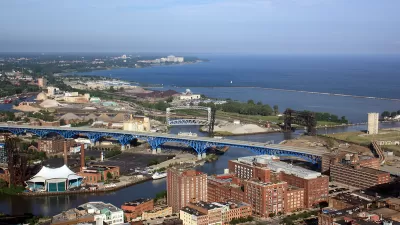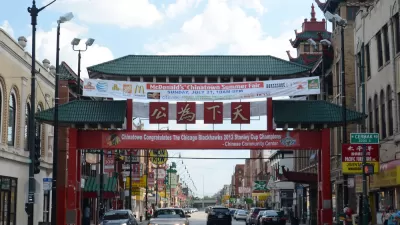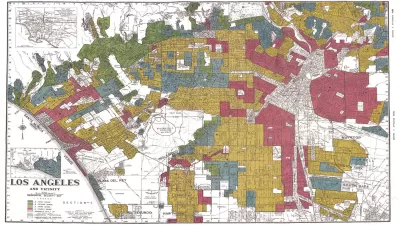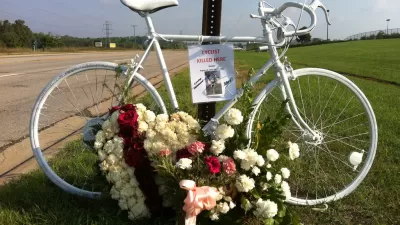Decades of racist policy and a lack of critical resources have left Cleveland in a perpetual state of economic fragility. The city can't afford another recession.

Cleveland has been hit hard over several decades by waves of population decline, recession, and lack of investment.
"City services began being slashed in the 1970s, then federal aid to cities fell dramatically in the 1980s and never recovered. Cleveland’s finances were ravaged again by the Great Recession – its neighbourhoods were devastated by foreclosure, and then, in 2012, Republican Governor John Kasich cut state aid to cities by half," writes Jake Blumgart.
The Cleveland that lifelong residents remember from before the 1970s no longer exists, says Blumgart, citing "some of the most inexorable forces in US history: anti-Black racism, deindustrialisation, population decline, state-level interference and aggressive suburbanisation."
Legislators and experts fear that without support in coming months, Cleveland could take another hit. "Like many US cities, Cleveland has spent the past half-century or more skipping from catastrophe to catastrophe. It can ill-afford another one," Blumgart writes. Cities like Detroit and Cleveland are unique, says Blumgart—no other advanced nation in the world has a racialized geography like the United States. The article lays out such practices as exclusionary zoning, restrictive covenants, and segregation as spurring the poor fiscal outcomes in the city of Cleveland.
"All of this ugly racial history devastated municipal finances," explains Blumgart. "All of this ugly racial history devastated municipal finances. Just as Cleveland became the home of the vast majority of the region’s low-income population, with the residents in the most need of public assistance, it became less and less able to maintain services."
Cleveland is a city that can't handle another recession.
FULL STORY: Cleveland is still suffering from the last recession. It can’t afford another

Study: Maui’s Plan to Convert Vacation Rentals to Long-Term Housing Could Cause Nearly $1 Billion Economic Loss
The plan would reduce visitor accommodation by 25,% resulting in 1,900 jobs lost.

North Texas Transit Leaders Tout Benefits of TOD for Growing Region
At a summit focused on transit-oriented development, policymakers discussed how North Texas’ expanded light rail system can serve as a tool for economic growth.

Using Old Oil and Gas Wells for Green Energy Storage
Penn State researchers have found that repurposing abandoned oil and gas wells for geothermal-assisted compressed-air energy storage can boost efficiency, reduce environmental risks, and support clean energy and job transitions.

Private Donations Propel Early Restoration of Palisades Playground
Los Angeles has secured over $1.3 million in private funding to restore the Pacific Palisades playground months ahead of schedule, creating a modern, accessible space that supports community healing after recent wildfires.

From Blight to Benefit: Early Results From California’s Equitable Cleanup Program
The Equitable Community Revitalization Grant (ECRG) program is reshaping brownfield redevelopment by prioritizing projects in low-income and environmental justice communities, emphasizing equity, transparency, and community benefits.

Planting Relief: Tackling Las Vegas Heat One Tree at a Time
Nevada Plants, a Las Vegas-based nonprofit, is combating the city’s extreme urban heat by giving away trees to residents in underserved neighborhoods, promoting shade, sustainability, and community health.
Urban Design for Planners 1: Software Tools
This six-course series explores essential urban design concepts using open source software and equips planners with the tools they need to participate fully in the urban design process.
Planning for Universal Design
Learn the tools for implementing Universal Design in planning regulations.
Ascent Environmental
Borough of Carlisle
Institute for Housing and Urban Development Studies (IHS)
City of Grandview
Harvard GSD Executive Education
Toledo-Lucas County Plan Commissions
Salt Lake City
NYU Wagner Graduate School of Public Service





























